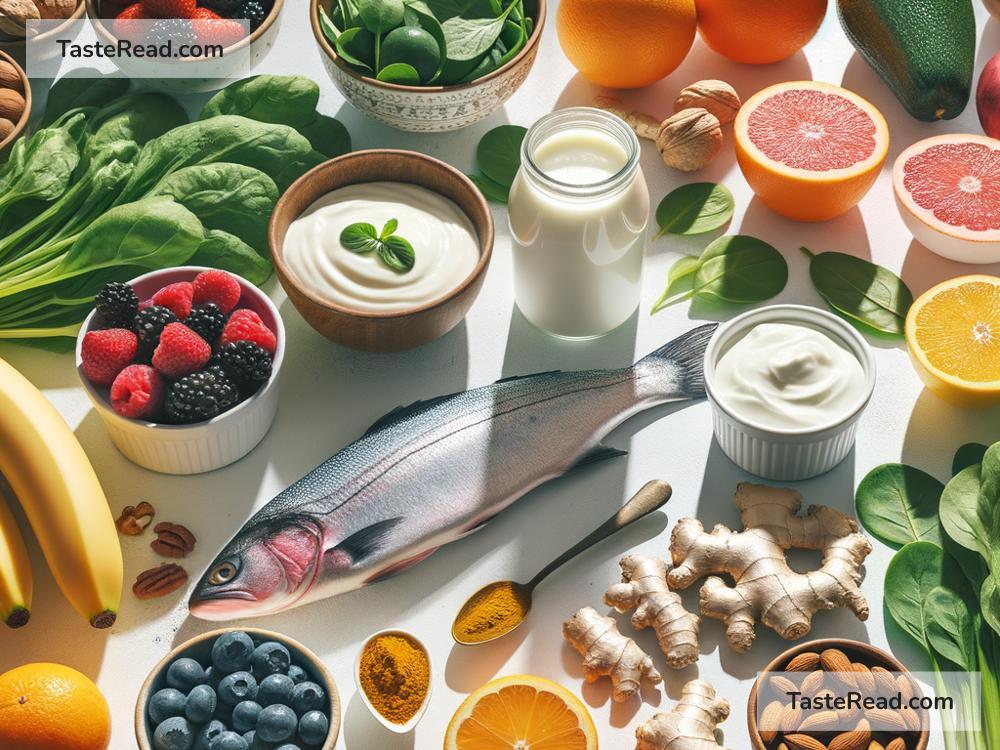Foods That Reduce the Risk of Allergies: Eating Your Way to Health
Allergies are common and can affect people of all ages. From seasonal sniffles to reactions to certain foods, allergies can make life uncomfortable and sometimes even dangerous. But did you know that what you eat may help lower your risk of developing allergies or ease their severity? Many foods have nutrients that boost your immune system and support your body’s ability to handle allergens better. Let’s explore some of these allergy-fighting foods!
What Are Allergies, and Why Do They Happen?
Before diving into the list of helpful foods, it’s important to understand allergies. Allergies happen when your immune system overreacts to something harmless, like pollen, dust, or certain foods. The immune system sends out histamines, which cause symptoms like sneezing, itching, swelling, or stomach issues.
Some of the most common allergies include:
– Seasonal allergies (to pollen or grass)
– Food allergies (e.g., peanuts, shellfish, dairy)
– Skin allergies (like rashes from certain materials or products)
While avoiding allergens is essential, eating certain foods may help reduce your body’s reaction or prevent allergies altogether.
1. Foods Rich in Vitamin C
Vitamin C is like a shield for your immune system. It lowers the release of histamines, substances that your body produces during allergic reactions. Histamines are responsible for symptoms like sneezing and swelling, so reducing them can ease your allergy troubles.
Some fruits and vegetables high in vitamin C include:
– Oranges
– Lemons
– Kiwis
– Strawberries
– Broccoli
– Bell peppers
Adding these to your diet can make a big difference, especially for seasonal allergy sufferers. Plus, they taste great in salads, smoothies, or as snacks!
2. Probiotic Foods
Your gut plays a major role in your immune system. When your gut is healthy, it’s better at handling allergens. Probiotics are good bacteria that improve gut health and balance your immune response.
You can find probiotics in these foods:
– Yogurt (choose one with active cultures!)
– Kefir (a fermented milk drink)
– Sauerkraut
– Kimchi
– Miso soup
If you don’t like these foods, you can also discuss probiotic supplements with your doctor. But eating probiotics from natural foods is always a better choice.
3. Omega-3 Fatty Acids
Omega-3s are healthy fats that fight inflammation in your body. Allergies often cause your body to become inflamed, which leads to swelling, redness, and other uncomfortable symptoms. By including omega-3s in your diet, you may be able to reduce the severity of allergic reactions.
Foods high in omega-3 fatty acids include:
– Salmon
– Sardines
– Mackerel
– Flaxseeds
– Walnuts
If you’re a vegetarian or vegan, flaxseeds and walnuts are great options for getting your omega-3s. You can sprinkle them on oatmeal, salads, or smoothies for a healthy boost.
4. Quercetin-Rich Foods
Quercetin is a plant compound that acts as a natural antihistamine. It helps prevent your body from releasing histamines, which are at the root of many allergy symptoms. Including foods high in quercetin may protect you from allergies and reduce inflammation.
Quercetin-rich foods include:
– Apples
– Onions (red onions have higher amounts!)
– Berries (especially blueberries)
– Kale
– Grapes
Try adding these foods to your daily diet, whether raw as snacks or cooked into tasty dishes.
5. Foods Containing Magnesium
Magnesium is a mineral that helps relax airways and lower inflammation. This is especially helpful for people with respiratory allergies like asthma or hay fever.
Magnesium can be found in:
– Spinach
– Pumpkin seeds
– Almonds
– Cashews
– Dark chocolate
Snacking on a handful of nuts or enjoying dark chocolate in moderation could be tasty ways to support your allergy defense.
6. Honey
Although honey isn’t a cure for allergies, it may help your body build tolerance to local pollen. The idea is simple: eating small amounts of local honey introduces small doses of pollen into your system, which can gradually reduce sensitivity to it.
Choose raw, unprocessed honey produced near where you live for the best results. Stir it into tea or drizzle it on toast or yogurt for a sweet and beneficial treat.
7. Ginger
Ginger is a powerful anti-inflammatory food that can soothe allergic reactions, particularly those affecting the skin or throat. It’s often used as a natural remedy for allergy symptoms because of its ability to calm the immune system.
Add ginger to your tea, stir-fries, or soups—or enjoy it as a refreshing ginger lemonade.
Top Tips for Allergy Prevention Through Food
Here are some quick tips to keep in mind:
1. Stick to whole, unprocessed foods. They support overall health better than heavily processed options.
2. Drink plenty of water to stay hydrated and help your body flush out allergens efficiently.
3. If you have food allergies, carefully read labels and consult your doctor before trying new foods.
4. Avoid foods that worsen inflammation, like sugary snacks or fried foods.
Final Thoughts
While allergies may be frustrating, the foods you eat can play a big role in keeping your immune system strong and reducing your reaction to allergens. From vitamin-rich fruits to gut-friendly probiotics, these foods can benefit everyone, whether you’re dealing with seasonal sniffles or hoping to prevent future issues.
Incorporate these allergy-fighting foods into your meals, and your body will thank you. Eating well is one of the simplest ways to feel better and breathe easier—even during allergy season!


